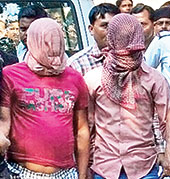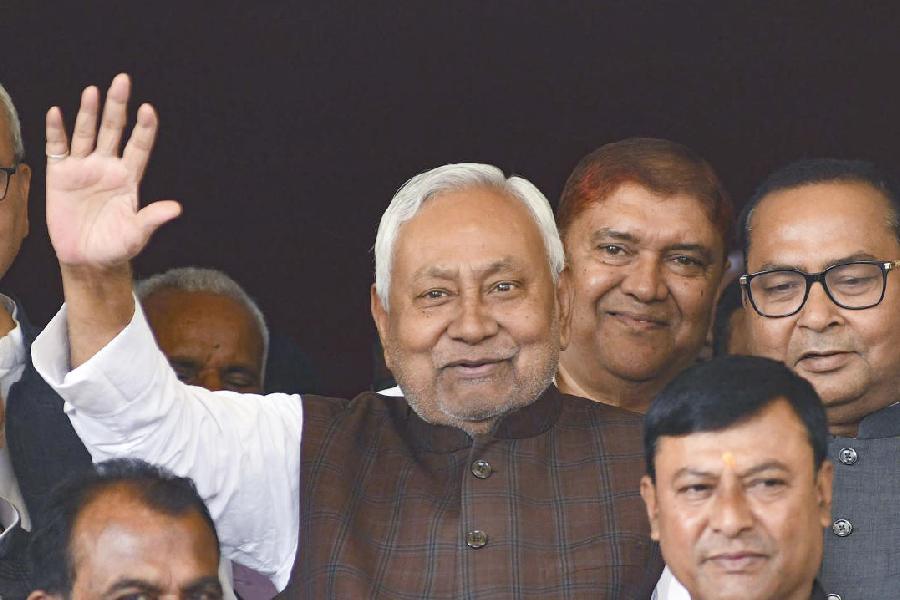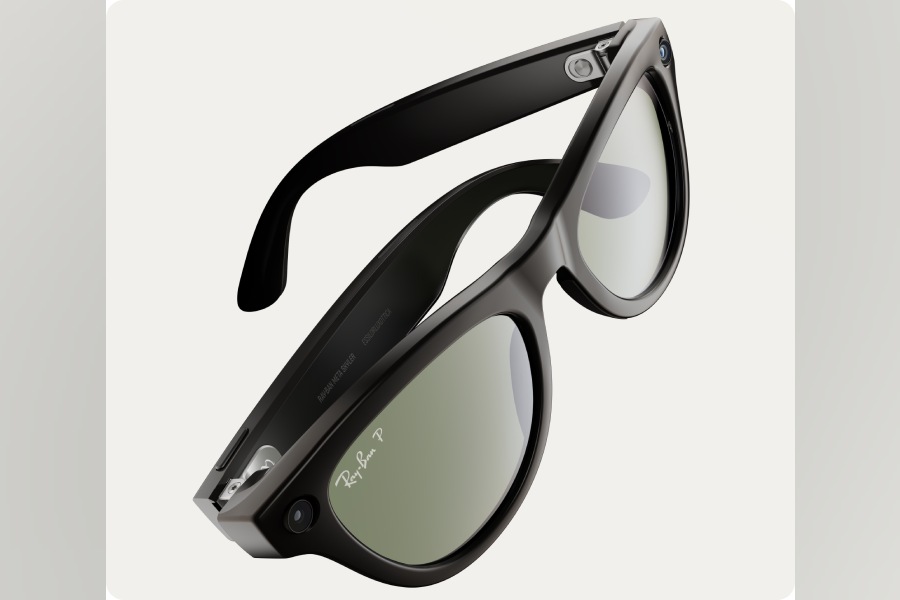 |
| Mohammad Ibne (left) and Abdus Subhan |
The two most protected men in Lalbazar aren’t police officers but the duo accused of killing one of them last Tuesday.
So wary are the police of any lapse that might jeopardise the investigation into the murder of Special Branch sub-inspector Tapas Chowdhury that a vehicle is being used to move Abdus Subhan and his uncle Mohammad Ibne even within the Lalbazar campus.
Police veterans couldn’t recall the last time such security arrangements had been made for anybody in their custody.
“Given the nature of the case, the joint commissioner of police (crime) is monitoring everything personally. Unlike in other cases where officers from other departments drop by during the interrogation of an accused, nobody who isn’t directly a part of the probe is being allowed anywhere near the accused without permission,” a senior officer of the detective department said.
The police’s concern about the safety of Subhan, the young man identified from television footage as the assailant who fatally shot sub-inspector Chowdhury, and his uncle and mentor Ibne apparently stems from what had happened 29 years ago.
In 1984, the prime accused in the lynching of deputy commissioner of police Vinod Mehta was killed in police custody after an allegedly damning confession indicting some big names of the then ruling party.
“Idris Ali’s custody death before he could be tried for the murder of the then DC, Port, is reason enough for Lalbazar not to take any chances with the security of the main accused in what is an eerily similar case,” the officer said.
Subhan and Ibne are in the central lock-up at Lalbazar, around 65 metres from the building housing the detective department’s office. Unlike others in the lock-up, the uncle-nephew duo don’t share a cell with anybody lest they be attacked.
A team of three constables and an officer escorts the duo out of the lock-up every time they need to be taken to the detective department for questioning, sources said.
“Usually, an accused is brought to the detective department from the central lock up on foot by a constable,” the officer said. “If it’s a group of accused, more than one constable escorts them from the central lock up.”
For Subhan and Ibne, a car is kept ready outside the lock-up for them to travel the 65 metres till the detective department’s building. Nobody except officers of the detective department who are involved in the probe know in which room they will be interrogated at a particular time.










